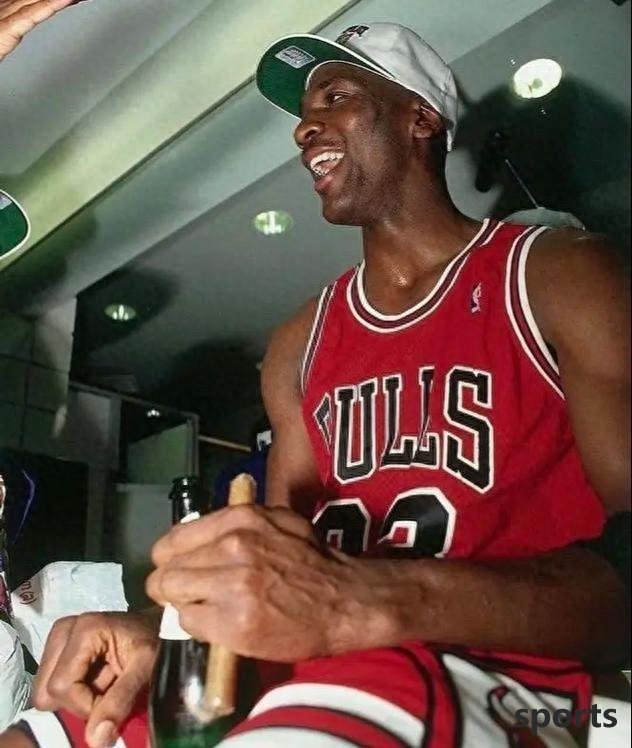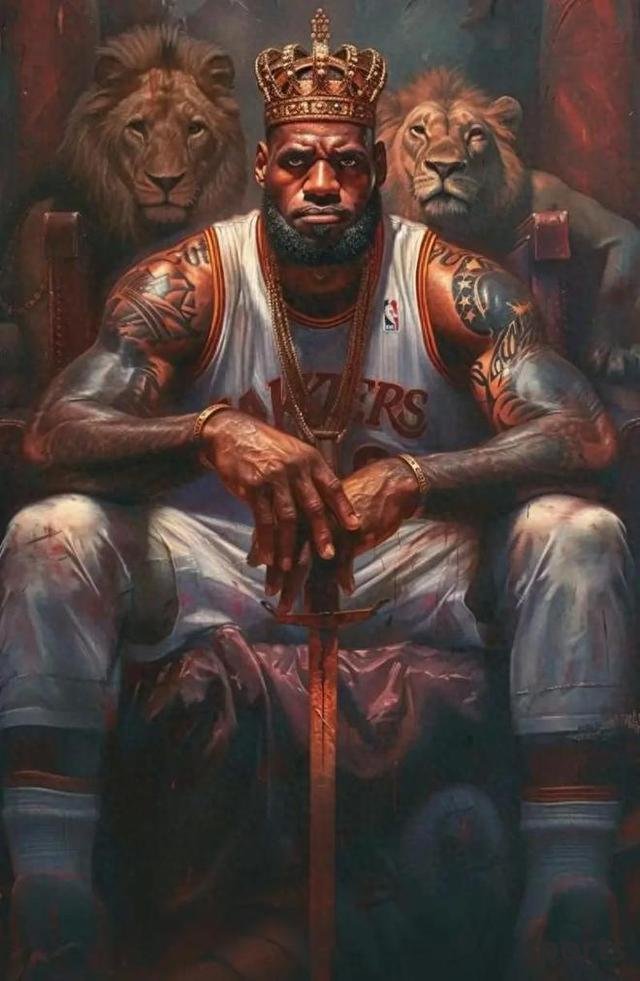Why do people always like to compare James and Jordan
People always like to compare LeBron James with Michael Jordan, which is almost one of the hottest and controversial topics in contemporary sports. There are many reasons behind this phenomenon, which can be attributed to the following points: The eternal pursuit of "the best in history": The human nature likes ranking and comparison. In any field, people are keen to discuss “who is the greatest?”. Basketball is one of the most popular sports in the world, and its discussion of the best players in history is naturally very attractive. Jordan was widely regarded as the undisputed GOAT for a long time. When James rose and showed his extraordinary ability to dominate an era, accumulating amazing data and honors, he was naturally pushed to the position of comparison with Jordan, becoming a challenger or tie-in. Extraordinary achievements and dominance: Jordan: 6 NBA championships (all won as FMVP), 5 regular season MVPs, 10 scoring champions, 14 All-Stars, 10 teams, 9 defenses, DPOY. He defined the 90s, with a perfect finals record and an unparalleled "killer instinct". James: 4 NBA championships (4 FMVPs), 4 regular season MVPs, historical scoring champion, historical playoff scoring champion, 19 All-Stars, 19 All-Squad (13 First Team), 6 All-Defensive Team, and fourth in assists history. He ruled the first 20 years of the 21st century, known for his unparalleled all-roundness (scoring, rebounding, assists) and his peak persistence. Both achieved extremely rare success and personal honors in their respective eras, reaching the peak of basketball. Comparing two peak figures together is a way for humans to understand greatness. Symbols and Cultural Influence of the Times: Jordan: He is a key figure in the promotion of the NBA's globalization and has pushed basketball to unprecedented heights. His brand "Air Jordan" has become a cultural phenomenon, with an influence far exceeding sports itself. He represents the sporting spirit and competitive desire of the 1990s. James: He is a superstar in the social media and digital age, and his influence is also spread all over the world. He actively spoke out on the court to participate in social affairs, established a business empire, and profoundly influenced the empowerment awareness and career planning of modern players (such as player self-selecting). Both of them are not only great players, but also cultural symbols of their respective eras. Comparing them, to some extent, is also comparing two different eras and basketball styles. The media and fans' needs: Create topics: The media knows that the "GOAT battle" can bring huge traffic and attention. Constantly comparing the two is one of the most effective means to attract attention and trigger discussion. Fans’ sense of belonging and arguments: Fans usually have a strong sense of belonging. Supporting Jordan or James and defending him to become part of the identity of the fans. This argument itself has become part of the fan culture, full of passion and fun (although sometimes it becomes irrational). Fill the information vacuum: In non-season or between matches, this eternal topic is the "fuel" that continues to attract basketball discussions. Different styles of competition and definition of "perfect": Jordan: Being portrayed as the ultimate scorer and key gentleman, with an unparalleled competitive heart, will to win and dominance at critical moments. His image is nearly perfect (especially during the Bull Dynasty). James: Known as omnipotent, he is one of the most omnipotent players in history, and can influence all aspects of the game (scoring, rebounding, assists, leadership). His peak length was incredible and he had success on different teams. This difference in style and definition has triggered a discussion about "what is the most core element of basketball's greatness": is it a Jordan-style scoring and killer instinct? Or is it a James-style full-scale influence and lasting peak? This contrast itself is full of tension. Generational Difference: Jordan is the youthful memory of many middle-aged and elderly fans, representing the "golden age" of basketball in their hearts. James is a superstar witnessed by the younger generation of fans as they grow up. Comparing the two people sometimes reflects the differences in the values and understanding of basketball of fans of different age groups. Why does this comparison sometimes feel uncomfortable or unreasonable? The era is different: the rhythm of the game, the rules (the defensive rules change greatly), the science of training, the level of medical rehabilitation, and the intensity of opponents are completely different. Direct comparison of data and achievements needs to be considered in the context of the times. The position is different from the role: Jordan is a pure shooting guard/terminator, and James is the organization forward/ball core. Their main responsibilities are essentially different from the way they influence the game. The length of the peak period is different from the trajectory: Jordan's peak is more concentrated (two three consecutive championships), with retirement in the middle; James' peak period is rare in history. The team is built differently: Jordan's core members of the Bulls dynasty are relatively stable; James formed a championship lineup through active choices in different teams. The dilemma of "Guan Gong vs. Qin Qiong": They have never confronted directly on the court, and all comparisons are based on assumptions, data, honors and subjective impressions. In summary, people like to compare James and Jordan mainly because of: 's instinctive pursuit of "the greatest". Both reached the absolute peak of basketball achievements. Both are epoch-making cultural idols. The media and fans need such an "eternal topic". They represent different basketball philosophy and the spirit of the times. This comparison is almost inevitable, and there will never be an answer that satisfies everyone.. But it is this ongoing discussion that highlights the extraordinary greatness of the two players and the lasting charm of the sport of basketball. Rather than obsessing with who is "stronger", it is better to appreciate the unique legends they each bring to basketball. Report/feedback

- Recent Posts
-
- Stein: Doncic s national teamm
- The Mavericks announce the 202
- The league wants 2-2? Foster s
- NBA character Alexander: The T
- Nike releases official video o
- US media suggests that the War
- Unpopular, Alexander s best cu
- Carlisle: We will continue to
- The regular season sweep 4-0,
- 19cm palm shakes the alliance:
- Hot Posts
-
- Yang Hansen tried out the Warr
- How strong is the strongest hi
- Looking forward! 2025-2026 NBA
- NBA rumor: Kevin Durant believ
- Anthony is rated as the strong
- Data analysis: Pacers 2-1 Thun
- Yang Hansen s rookie contract
- Replica Legend, Thunder Alexan
- NBA Summer United: Yang Hansen
- Magic vs. Free throws: Hallibu
- Durant is destined to join the
- There are good and bad! Team m
- Which NBA team is more suitabl
- NBA character Alexander: The T
- Behind SGA’s Give Up 100 milli
- Hit 10+4+5+3! Yang Hansen made
- After Westbrook jumped out of
- The NBA playoff division final
- After Bill reached a buyout, t
- 2025 Rookie Observation (20):
- search
-
- Links
-
